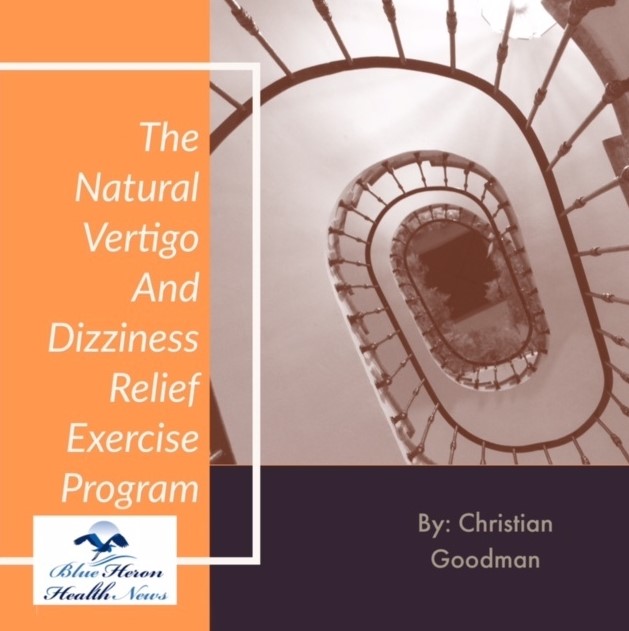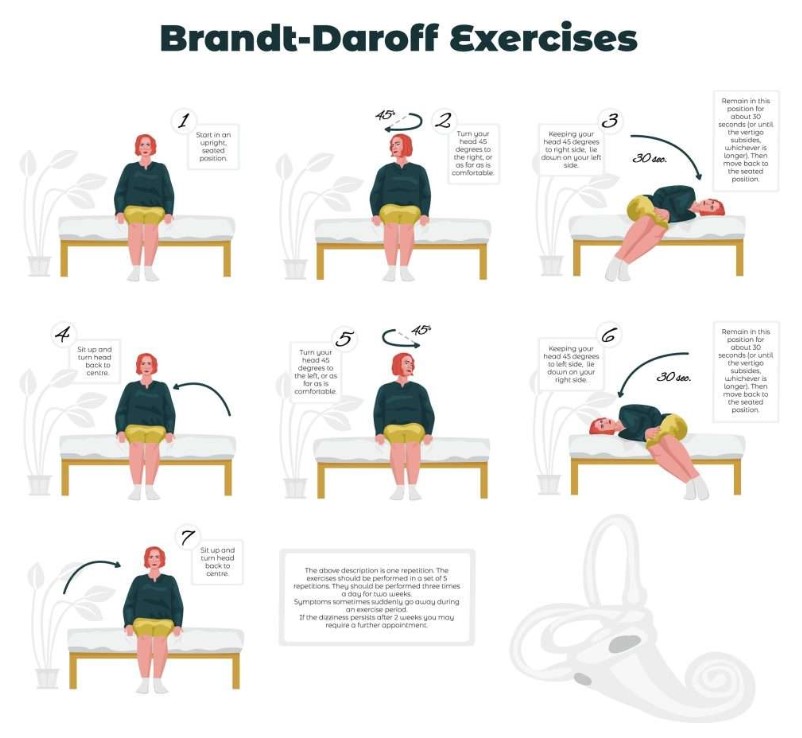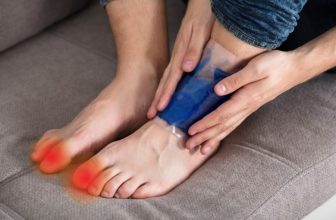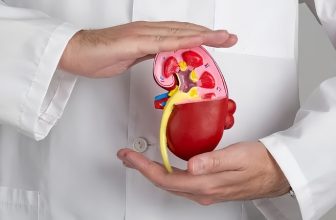Top Natural Products for Managing Dizziness with Vertigo and Dizziness Program

Dizziness and vertigo are common conditions that can severely impact daily life. Whether caused by vestibular dysfunction, poor circulation, or other underlying issues, finding effective and natural ways to alleviate symptoms is crucial for many individuals. The Vertigo and Dizziness Program, a well-researched solution, combines lifestyle changes, natural remedies, and therapeutic exercises to manage and potentially resolve these symptoms.
This article explores the top natural products and practices highlighted in the program that help manage dizziness, along with explanations of how they work and why they’re effective.
Understanding Dizziness and Vertigo
Before diving into remedies, it’s important to differentiate dizziness and vertigo:
- Dizziness refers to a feeling of lightheadedness, imbalance, or unsteadiness. It may occur due to low blood pressure, dehydration, or poor circulation.
- Vertigo, on the other hand, involves a spinning sensation, often linked to inner ear problems or vestibular dysfunction.
The underlying causes of dizziness and vertigo can range from benign positional vertigo (BPPV) to more serious conditions like Meniere’s disease or vestibular neuritis. Managing these symptoms naturally requires a comprehensive approach.

1. Claritox Pro: A Natural Supplement for Dizziness
One of the leading recommendations in the Vertigo and Dizziness Program is the use of Claritox Pro, a natural supplement designed to support balance and brain health.
Key Ingredients
- Zinc and Chromium: Essential minerals that support brain function and immune health.
- Alpha-Lipoic Acid: A powerful antioxidant that reduces inflammation and supports nerve function.
- Berberine and Resveratrol: Known for their ability to improve blood flow and reduce oxidative stress.
- Ginkgo Biloba: Enhances circulation to the brain, aiding balance and cognitive function.
How It Works
Claritox Pro works by improving blood flow to the brain and inner ear, reducing oxidative stress and inflammation, and supporting vestibular system health. Regular use of Claritox Pro has been reported to reduce dizziness episodes and improve overall stability.
2. Vestibular Rehabilitation Exercises
Physical exercises are a cornerstone of the Vertigo and Dizziness Program. These exercises retrain the brain and vestibular system to adapt to balance disturbances.
Effective Exercises Include
- Gaze Stabilization Exercise
- Fixate on a stationary object while moving your head side-to-side.
- Purpose: Improves coordination between the eyes and inner ear.
- Epley Maneuver
- A series of head movements designed to reposition crystals in the inner ear.
- Best for managing BPPV.
- Balance Training
- Standing on one foot or walking in a straight line to improve proprioception and stability.
Benefits
These exercises enhance brain and vestibular system coordination, reduce reliance on compensatory movements, and encourage long-term balance improvement.
3. Herbal Remedies for Vertigo
Natural herbs have been used for centuries to alleviate symptoms of dizziness and vertigo. Some of the most effective herbs include:
Ginger
- Benefits: Reduces nausea and dizziness by improving gastrointestinal motility and circulation.
- How to Use: Ginger tea or capsules can be consumed during dizziness episodes for quick relief.
Ginkgo Biloba
- Benefits: Known to improve blood flow to the brain and alleviate balance issues.
- How to Use: Take in supplement form or as a tea for long-term management of vertigo.
Peppermint and Lavender
- Benefits: Their soothing properties help reduce stress, a common trigger for dizziness.
- How to Use: Aromatherapy or herbal infusions can be effective.
Chamomile
- Benefits: Acts as a natural sedative to calm the nervous system and reduce vertigo episodes.
- How to Use: Drink as a tea before bedtime.

4. Diet and Lifestyle Adjustments
The Vertigo and Dizziness Program emphasizes the importance of a healthy lifestyle to manage symptoms effectively.
Dietary Recommendations
- Hydration: Dehydration is a common cause of dizziness. Drinking 8-10 glasses of water daily is essential.
- Low-Sodium Diet: Excess salt can lead to fluid retention in the inner ear, exacerbating symptoms.
- Incorporate Antioxidants: Fruits like berries, oranges, and grapes are rich in antioxidants that improve brain health. Vegetables like spinach and kale enhance circulation.
Lifestyle Tips
- Avoid Triggers: Minimize exposure to sudden movements or bright lights that can worsen symptoms.
- Regular Exercise: Activities like walking, swimming, or yoga improve overall balance.
- Stress Management: Techniques like meditation, deep breathing, and mindfulness reduce stress-induced dizziness.
5. Essential Oils and Aromatherapy
Aromatherapy, using essential oils, is another natural method to manage dizziness. Oils that are particularly effective include:
Peppermint Oil
Stimulates circulation and alleviates headaches and dizziness. Application: Diffuse in the air or apply diluted oil to the temples.
Lavender Oil
Calming effects help reduce anxiety-related dizziness. Application: Inhale directly or add to a warm bath.
Lemon Balm Oil
Known for its ability to calm the nervous system. Application: Add a few drops to a diffuser or massage onto the skin.

6. Acupressure and Reflexology
Acupressure, a traditional Chinese medicine technique, involves applying pressure to specific points on the body to relieve symptoms.
Effective Pressure Points
- P6 (Neiguan): Located on the inner wrist, this point is known to reduce nausea and dizziness.
- GV20 (Baihui): Found at the crown of the head, stimulating this point can improve balance.
Benefits
This technique improves energy flow (Qi) throughout the body, reduces stress and tension, which are common triggers for dizziness.
7. Sleep and Rest
Sleep deprivation can worsen dizziness. The program emphasizes maintaining good sleep hygiene:
- Regular Sleep Schedule: Go to bed and wake up at the same time daily.
- Comfortable Environment: A dark, quiet, and cool room promotes restful sleep.
- Limit Caffeine and Screen Time: Reduce stimulation before bedtime.
8. The Role of Hydration
One often overlooked but vital aspect of managing dizziness is staying hydrated. Dehydration can lower blood pressure and reduce blood flow to the brain, triggering lightheadedness.
Hydration Tips
- Drink water consistently throughout the day.
- Avoid diuretics like caffeine and alcohol.
9. Incorporating Mindfulness and Stress Management
Stress is a common trigger for dizziness. Incorporating relaxation techniques into your daily routine can help.
Techniques Include
- Meditation: Focus on deep breathing and mental clarity.
- Yoga: Combines gentle movements and breathing exercises.
- Progressive Muscle Relaxation: Reduces physical tension and stress.
Conclusion
The Vertigo and Dizziness Program provides a holistic approach to managing dizziness by combining natural remedies, lifestyle adjustments, and therapeutic exercises. By incorporating supplements like Claritox Pro, engaging in vestibular rehabilitation, and utilizing herbal remedies, individuals can experience significant relief. Additionally, maintaining a healthy lifestyle through proper hydration, diet, and stress management further enhances the effectiveness of these remedies.
While these natural solutions are promising, it is essential to consult a healthcare professional to ensure they are suitable for your specific condition. With consistent effort and the right approach, managing dizziness and vertigo naturally is achievable.











